Civil Rights Attorneys from Piccuta Law Group Finish First Week of Trial in Police Excessive Force Case
The civil rights attorneys from the Piccuta Law Group finished the first week of a jury trial in a police excessive force case last week. The case is entitled Joseph Green v. City of Stockton, Et al. and is pending in the San Joaquin County Superior Court. The firm and the client, Joseph Green, claim that he was the victim of police excessive force stemming from a 2011 beating by undercover police officers from the Stockton Police Department.
The Facts of the Civil Rights Lawsuit for Police Excessive Force
In 2011, when Joseph Green was 16 years-old he went to a convenience store with his mother and five-year-old sister. Green, who is African-American, was attempting to buy candy for his younger sister with a damaged dollar bill. The clerk would not accept it and Green and the clerk got into a verbal exchange about the money.
At that time, a person in line told Green “to get the f**k out the store, he doesn’t want your money.” Unbeknownst to Green, that person was a police detective in plainclothes named officer Robert Johnson. Not seeing a badge, Green told the police officer to mind his own business. The officer then told Green he was a cop. Green did not believe him and said “I don’t see a badge on you and I don’t care I’m not doing anything wrong” or something similar. Green then took his damaged dollar, turned his back and walked out of the store.
After Green turned and was leaving, the police officer pulled his badge out from underneath his shirt. The police officer then grabbed Green from behind as he was right outside the entrance to the store and pulled him back in. The police officer then spun Green around so the two were facing each other. The officer then drove green back into an aisle and took him down. Green landed on his back with the police officer on top. The police officer rolled Green over onto his stomach and then pinned him with his knee.
Within two to three seconds, the police officer began punching Green in the face. A second police officer, Robert Wong, who was Johnson’s partner, came over to assist. Police officer Johnson struck Green in the face at least three times. Johnson then secured Green’s hands behind his back with zip ties and started searching him. As he was searching him, Johnson took the back of Green’s head and slammed his face into the floor. The force of the face slam was so hard that Green’s feet flew up behind him more than four feet into the air.
As a result of the attack, Green’s front two top teeth were knocked out, a third tooth chipped and his lip split. The police officers did not summon emergency medical care to the scene or transport him directly to the hospital as their training required them to do. Instead, they took him to the station for booking and cited him for trespassing and resisting arrest. Photos of Green’s injuries were taken at the station. After Green spent considerable time at the police station, he was taken to the hospital in a patrol unit. At the hospital, his lip was eventually stitched. Green’s teeth could not be re-implanted because they were not properly preserved and too much time had passed.
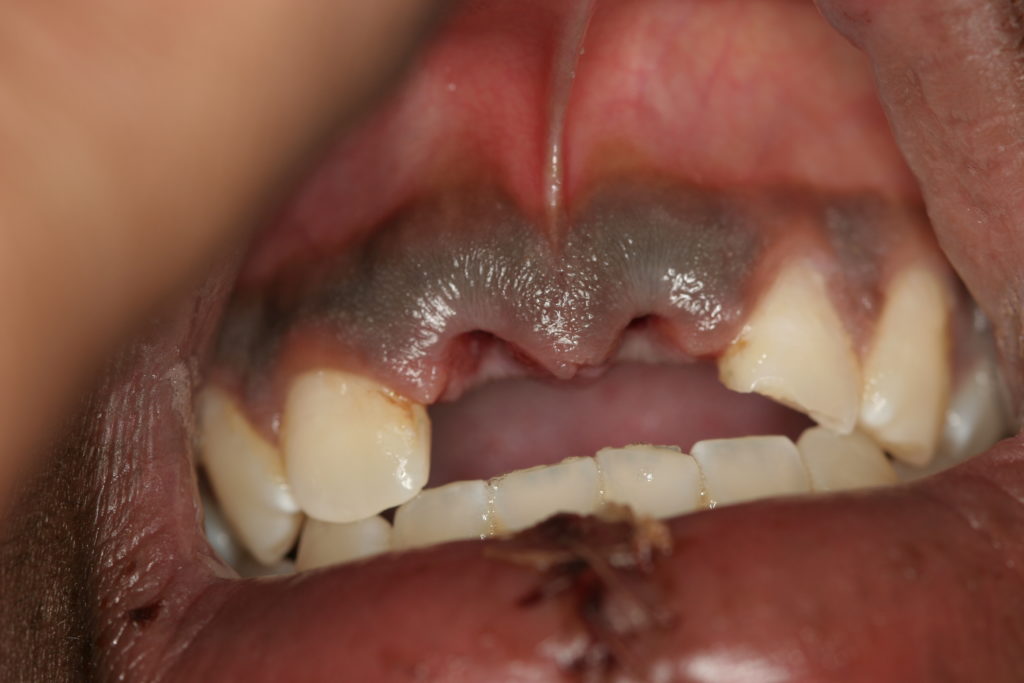
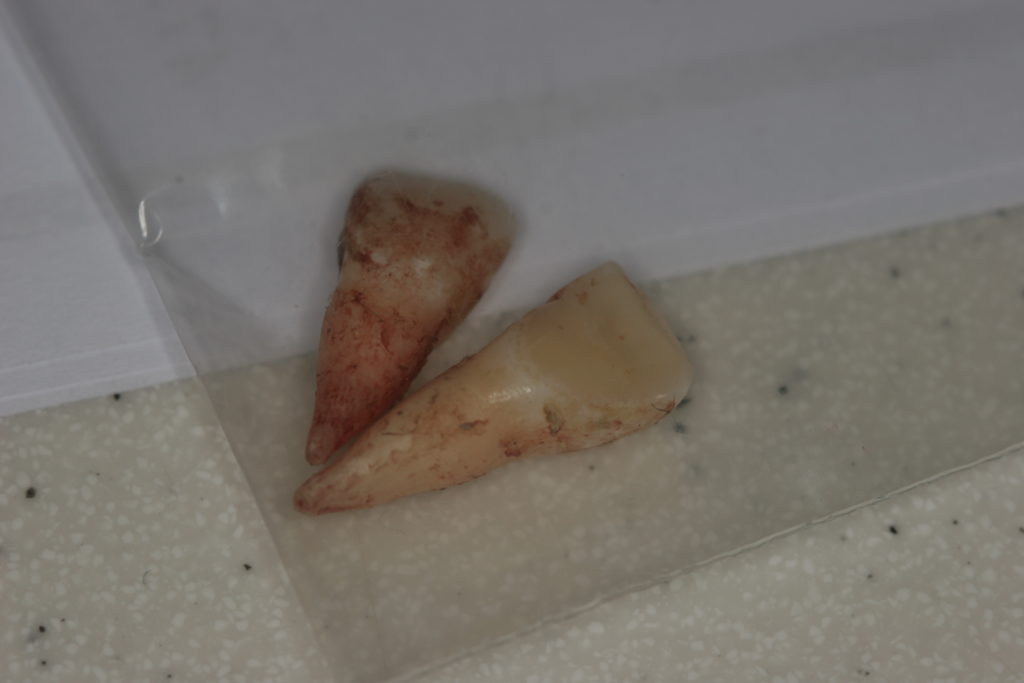
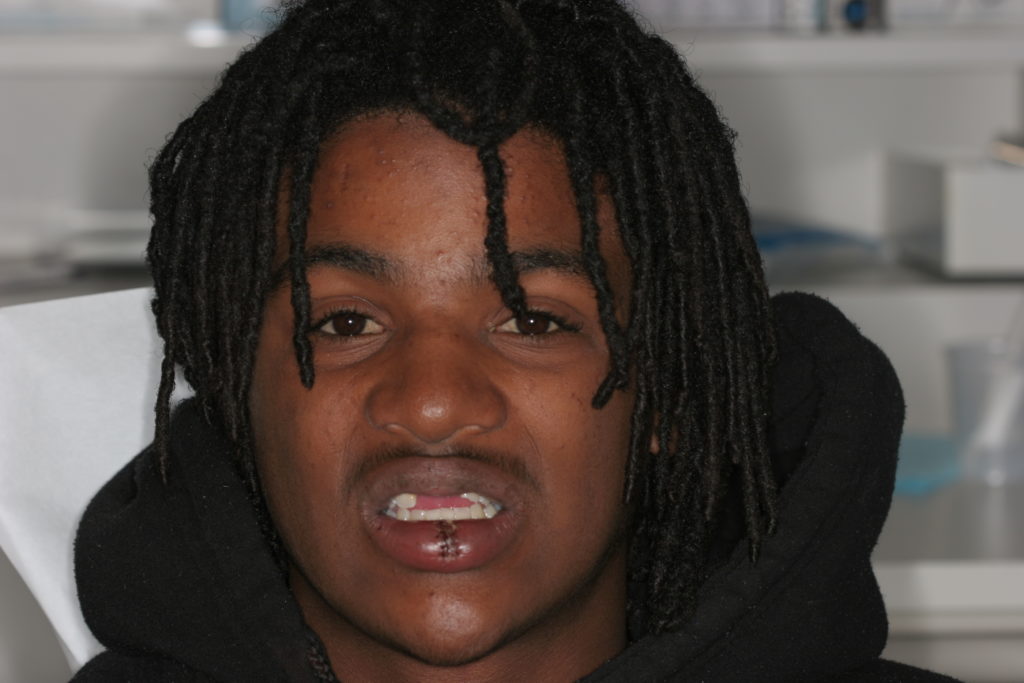
Before the officers left the convenient store, Officer Johnson staged evidence. Specifically, police officer Johnson took a stack of hand-held shopping baskets out of a rack and placed them diagonally in the aisle where he took Green down. He photographed the baskets and submitted them as evidence with his police report. He then wrote in his police report that Green was struggling with him and that they were pushing and pulling each other when the two inadvertently tripped over the baskets. Johnson claimed that Green landed face first, after this accidental trip, which caused his teeth to fall out. Johnson admitted that he struck Green in the face two times, but said that these were distraction blows that he administered to get Green to turn his head away from him. Police officer Johnson claimed that Green was spitting blood in his direction and that he was concerned about blood borne diseases.
Johnson also claimed, in his police report, that he saw a digital scale in Green’s hand and that he believed that Green was dealing drugs and armed. However, no scale was ever recovered and Green was not armed. Officer Johnson wrote in his police report that after Green was hand-cuffed they took him into custody without incident. Johnson completely omitted from the report that he slammed Green’s face into the floor.
Johnson completely omitted from the report that he slammed Green’s face into the floor.
Officer Wong would write in his police report that the Johnson and Green tripped over baskets and fell, when he could not have seen it. Officer Wong also failed to include any mention of the strikes and face slam that Johnson delivered in his police report. Charges for resisting arrest and trespassing were dropped and never pursued.
The Civil Rights Claims Advanced by Our Police Excessive Force Attorneys
The claims advanced by our civil rights attorneys, in the police excessive force case, include both federal and state claims. The state claims include: assault, battery by a police officer, intentional infliction of emotional distress and violations of the Bane Act.
The Bane Act is a California statute. It is often referred to as California’s civil rights law. It is a powerful law because it allows for the recovery of attorney fees and the award of a penalty. If a violation of the Bane Act is found, then the jury may also award up to three times the actual damages as a penalty. For example, if the jury was to find that the officers violated the Bane Act and that Green was entitled to $100,000 in damages, they could also award up to another $300,000 as a penalty.
This federal law allows people to bring claims for constitutional violations against individuals working in local government.
The federal claims advanced by our civil rights attorneys include claims brought pursuant to 42 U.S.C. § 1983. This federal law allows people to bring claims for constitutional violations against individuals working in local government. For example, this includes: county sheriffs, California highway patrol officers, city police officers, state forest rangers, state probation officers, correctional officers working for state prisons, local government employees, etc.
With respect to constitutional violations, this includes claims for the violation of any rights guaranteed by the United States Constitution and its Amendments. In this case, it includes the following:
First Amendment Violation – The right to exercise free speech without retaliation from police officers or other law enforcement officers.
Fourth Amendment Violation – The right to be free from unlawful arrest by police officers or other law enforcement officers.
Fourth Amendment Violation – The right to be free from excessive force by police officers or other law enforcement officers.
Fourth Amendment Violation – The right to be free from illegal search and seizures by police officers or other law enforcement officers.
Fourteenth Amendment Violation – The right to needed medical care while in the custody of police officers or other law enforcement officers.
With respect to the federal claims, our civil rights attorneys are claiming that even if the second officer is found to not be directly responsible for a violation, he should still be held accountable. Two legal principles allow for this. The first is the integral participant principle. This allows for an individual to be held responsible for the constitutional violation if he participated in some meaningful or personal way. That individual’s participation does not have to rise to the level of a constitutional violation on its own.
The second legal principle is based upon a police officer’s failure to intervene. Under the law, a police officer has the duty to intervene when he sees another officer violating the law. This includes violations of the constitutional rights of a person. For this to apply, the officer who failed to intervene must have a realistic opportunity, under the circumstances, to intervene and stop the other officer’s violation.
What Happened During the First Week of the Police Excessive Force Trial
Police excessive force and civil rights attorney, Charles Tony Piccuta, is lead trial counsel for the case. Both officers are represented by separate attorneys. Officer Johnson is represented by Kevin Dehoff of Angelo, Kilday and Kilduff. Officer Wong and the City of Stockton are represented by Ron Scholar of Cole Huber.
During the first week of trial, Piccuta and defense counsel spent three days selecting a jury. The jury eventually selected had a mix of both men and women of all ages and races. It also had one African-American female juror. During the jury selection process, defense counsel struck two African-American jurors. Piccuta challenged the dismissal of those jurors as improperly being based on race. Thereafter, the defense attorneys did not strike the remaining African-American juror.
The opening statement delivered by Piccuta was powerful. Piccuta began to tear up during his opening statement when recounting the events of what happened to his client.
After the jury was selected, Piccuta gave his opening statement. The opening statement delivered by Piccuta was powerful. Piccuta began to tear up during his opening statement when recounting the events of what happened to his client. Piccuta’s opening statement incorporated much of the video surveillance of the incident. The video surveillance will be the most important evidence presented in trial and will prove the case.
Piccuta claimed in his opening: that the evidence would show that Officer Johnson purposefully beat Green because he was upset by how Green spoke to him; that he staged the scene and fabricated the police report to cover up what he did; that the officers failed to get Green the medical treatment he needed; and that both officers conspired in the cover up.

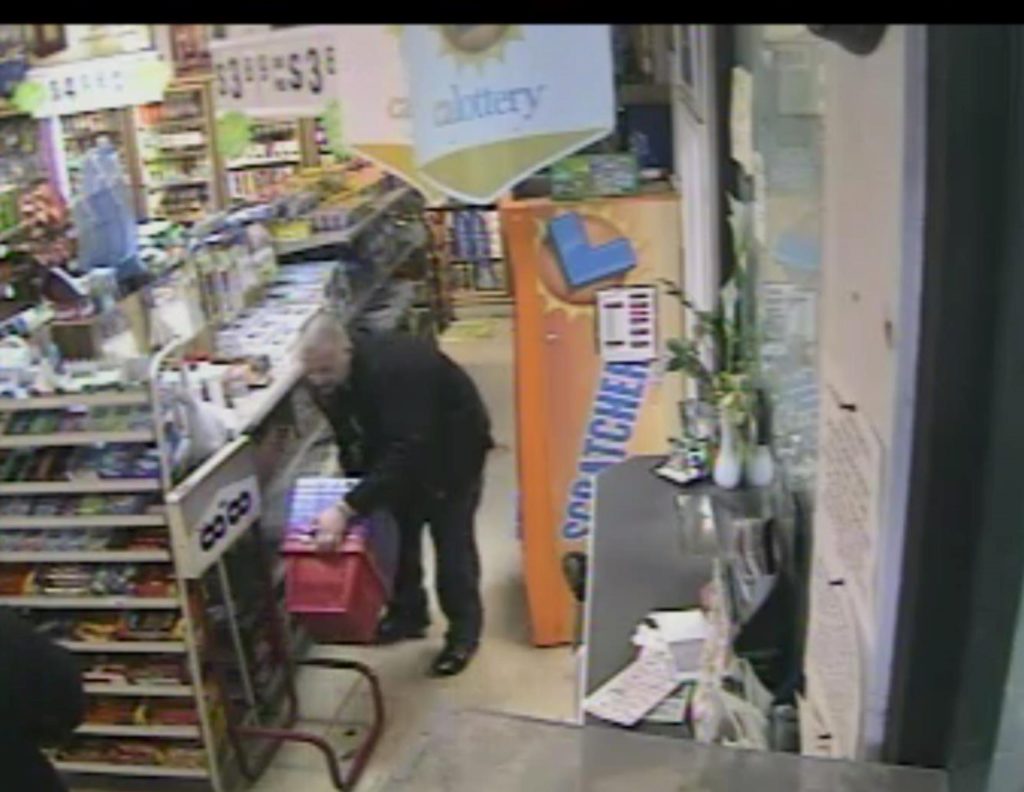
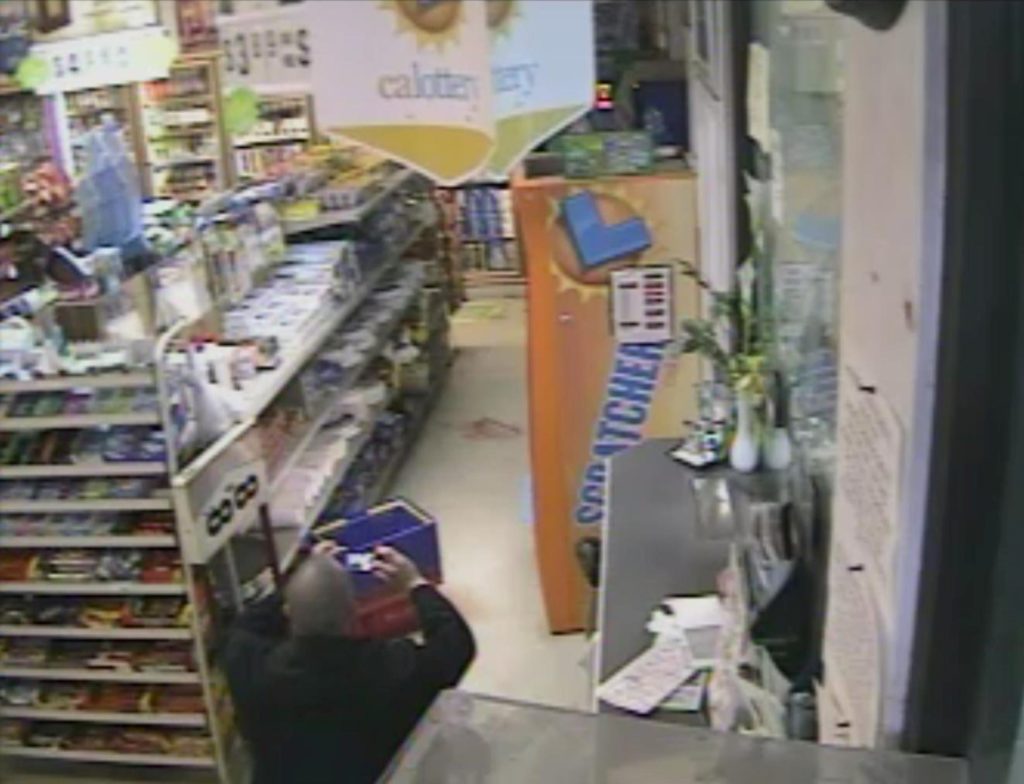

The defense also gave their opening statements. The opening statement by Officer Johnson’s attorney basically claimed: that Green resisted arrest causing Johnson to react quickly to developing circumstances; that Johnson used the amount of force that was necessary; that Johnson followed all his training and police policies; and that he did nothing wrong. Officer Wong’s attorney took the position that: Wong did not do anything wrong; did not know what was happening; did not observe the strikes or face slam; and did not participate in any meaningful way or have a chance to intervene.
After opening statements, civil rights attorney, Piccuta, began putting on evidence. The first witness called by Piccuta was Green’s mother. She testified as to what she observed at the convenience store that day. She also testified as to picking up Green from the hospital and how the events transformed Green and affected their whole family.
Specifically, she testified that Green started having recurring nightmares involving Officer Johnson and was wetting his bed. Green’s mother explained how she then arranged for him to see a mental health counselor. She would also discuss that Green was diagnosed with PTSD and depression related to the incident.
The next witness called by Piccuta was a bystander who was in the convenience store that day. The bystander testified that he observed the events and that what Officer Johnson did was unnecessary. The bystander was so disturbed by the events that he started crying on the stand during his testimony. The bystander testified that Officer Johnson became upset and went after Green for the way Green spoke to him and what he said.
The bystander was so disturbed by the events that he started crying on the stand during his testimony.
The final witness that Piccuta called was Officer Wong. Officer Wong testified that he and Johnson were good friends. Wong would reveal that he and Johnson had worked on several assignments and task forces together and that they were friends outside of work. Wong testified that Johnson was one of his closest friends at the department. Piccuta did not finish Wong’s examination. Wong will continue his testimony when trial resumes in week two.
The High-Profile Civil Rights Case Was Closely Watched by the Media
During the beginning of trial, several media outlets and reporters attended and covered it. This includes, the Stockton Record, the Davis Vanguard and KQED from San Francisco. Multiple reporters attended the trial. Stories from those media outlets detailing the beginning of trial were published. Click the links below to read those stories.
Story published by the Stockton Record.
Story published by the Davis Vanguard.
Hire A Skilled Civil Rights Attorney If You Were the Victim of Police Excessive Force
If you or a loved one has experienced a violation of your rights by a law enforcement officer, contact an experienced civil rights attorney at the Piccuta Law Group today. Our civil rights attorneys have experience handling all types of civil rights cases. These cases include claims for: First Amendment-free speech retaliation; Fourth Amendment-illegal search and seizure; Fourth Amendment-wrongful arrest; Fourth Amendment-excessive force and police brutality; Eighth Amendment-deliberate indifference to medical need; Eighth Amendment-cruel and unusual punishment; Fourteenth Amendment-deliberate indifference to medical need; Bane Act violations; battery by a police officer; among several other claims.
A consultation with one of our civil rights attorneys is free. Our fees are contingent. This means if we take your case, it is at no charge to you and we only get paid if we obtain a recovery. We advance all costs and eat those costs if we lose the case. In other words, having our civil rights attorneys take on your case is with little or no risk to you. Contact us now for a free consultation.

